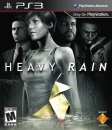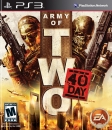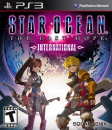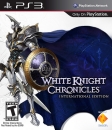On the main site I see a link to an article about RPGs: http://www.gamrreview.com/article/89238/analyzing-the-rpg-genre/
In this article the author Karl Koebke tries to give a definition, what a RPG is. Let's take a look. The definition he comes up is:
1.Main focus of the game must be (largely) persistent Player controlled characters with base stats that define their attributes and which can be increased over time, e.g. strength and agility.
2. There must be some means for the player to increase the base stats of these characters over time by completing objectives which is usually, but not always, called “experience”.
That sounds reasonable at first. With this definition he rules, that Tokyo Jungle is an RPG, while Zelda and Monster Hunter are not. Because Tokyo Jungle has 'HUnger' that takes the role of experience, while Monster Hunter has no such mechanics. Is that true?
Monster Hunter has a persistent player controlled character with base stats. Some of these stats can be increased over time, mainly attack and defense. To increase the stats you use weapons and armor. That's no experience it seems. But look more carefully: to fulfill the definition you have to complete objectives, sometimes called experience. In most RPGs you have to kill foes, to increase your experience. In Monster Hunter you kill foes, to carve items from the dead bodies. These monster carves are used to build weapons and armor that in the end ... increasing the stats of your character.
Yes, Monster Hunter has the same gameplay mechanics that is usually called 'experience'. The author clearly fails to see, that his definition includes this game.
Zelda is not so clear. Your character gets better with different items, as you can do more stuff. To get these items, you have to fullfill some objective. You can argue, that these items are no 'stat', that's true. So the definition may rule out Zelda-games, but it could be discussed.
Is this definition good? I'm torn. It is not bad at all, but as seen it can easily misinterpreted.
Could I define it better? I will try.
Let's look at the roots. We talk here about videogame-RPGs, but they got their name from their real root: RPGs. These are also called pen&paper-RPGs, as you play them with pen and paper basically. Wikipedia differentiates between 'Role Playing games' [1] (that are these pen&paper-games) and 'Role playing video games' [2].
RPGs are played by a group of players that come together, sit around a table and start developing their characters. Everyone in the game-round usually plays one character and has big control over it: stats, appearance, morals and other attributes are decided by the player. In each round is one player, who controls no own characters, this one controls the game world and directs the adventure. This role is named 'gamemaster'. The gamemaster sets an situation and the players think how the characters they play would react. Together they create a story.
The most popular of the RPGs is Dungeon and Dragons, it's also the second one. It directly evolved from the first RPG 'Blackmoor'. Blackmoor was created by Dave Arneson based on the rules for a wargame named 'Chainmail' from Gary Gygax. Both came together to create Dungeon&Dragons, until today the most popular RPG. D&D had already mechanics like experince and hit points, levels, classes and round-based combat.
RPGs evolved from that. Some don't have classes, some drop levels. For example in Shadowrun [3] you can use Karma (the name of experience points in that game) to increase your skills or attributes directly. You have no level to wait for and no class to restrict your choices. Some games hav not even numbers to describe certain aspects of your character. But in all games, the player controls the character.
As these games got popular some people tried to convert this experience to the computer, to be able to play it alone, if your gaming-friends are not present. The first games were strongly influenced by D&D and at the time (70s) simple graphical output or even only text-output. The obvious choice for this games (until today) was, that the computer takes the role of the gamemaster and controls the world and all people that are not the playable character (called NPC=non player character).
Obviously the choices for the player(s) have to be restricted. While a human gamnemaster can react to some crazy idea a player has, the computer (or console) can only react to things, that the programmer has thought about. So usually your choices as a player are restricted. In a RPG the gamemaster can say: 'The dragon has spotted you and flies towards you. What do you want to do?' The players can flee, fight, talk with the dragon, pray to the gods, hide, distract the dragon or ignore him. And much more, if the players come up with an idea. In a computer-game the choices are limited.
So how to define RPVG (role playing video games). Clearly the roots are the RPGs. The main point here is control over your character. As argued, the video-game has to restrict your choices, but games make that very different, and some restrictions are so loose, that you don't feel them very much. So I would say: A RPVG allows you to customize the main aspects of your character as the game develops. Or to put it differently: If you play the game a second time, your character is different at a certain point of the game. And if your friend plays it, his character is even different to both of yours.
So in Etrian Odyssey you choose the class and can decide which abilities to increase while increasing your level. In FFX Tidus and Yuna look the same, but you can develop their abilities differently. But you could argue that the influence of the player is very low. In Baldur's Gate, nethack, Diablo - always you characters can be developed differently. Zelda is clearly outruled here. Sure, you can differentiate about the heart-containers. But your main abilities depend on the items, and these you must have to get forward in the game, so Link always can the same as he reaches a boss. Monster Hunter on the other side allows you to develop your character in different directions - through customization of armor and weapons. I don't know Tokyo Jungle, so I cannot say anything about that.
Pandora's Tower would be a RPG after Koebkes definition: The main character Aeron has attributes, that increase over time, as he gets experience points and levels up. But there is no way to influence this increases, it comes automatically. If you have earned enough XP, Aeron gets better. And every time in the same way. So following my definition, it is no RPG. That doesn't change the fact, that it is a great game though.
What is your opinion about that?
[1] http://en.wikipedia.org/wiki/Role-playing_game
[2] http://en.wikipedia.org/wiki/Role-playing_video_game
[3] http://en.wikipedia.org/wiki/Shadowrun
As many different definitions turn up in the thread, I want to summarize a little.
Torillian:
1.Main focus of the game must be (largely) persistent Player controlled characters with base stats that define their attributes and which can be increased over time, e.g. strength and agility.
2. There must be some means for the player to increase the base stats of these characters over time by completing objectives which is usually, but not always, called “experience”.
Mnementh:
A RPVG allows you to customize the main aspects of your character as the game develops.
Scoobes:
I suppose for me it's a game where the player has a great deal of control in how to improve your base character(s). I don't think it has to strictly be stat based (I still count Deus Ex Human Revolution as an FPS/RPG) but it shouldn't be solely tied to in-game progress and there should be multiple elements you can improve/develop as you progress.
However, I also feel that storytelling should play a bigger part in defining what makes an RPG. The ability to influence the storyline is usually associated with adventure games, but to me this also makes a significant portion of what an RPG should encompass; shaping your character not only in battle stats, but also in character/personality development. In games with a party system, this should include inter-party relationships.
FOX:
I'm pretty all-inclusive in my definition of an RPG. The genre was founded on two principles: stats and player choice (I'm basing this off of D&D, the first "RPG"). As such, games built around at least one of those two concepts can be considered RPGs, but I heavily stress the "built around" part. Stats and/or player choice must be an integral part of the game, not ancillary, and must be used directly. I do not count "invisible stats" or health bars. The game also must allow for stat management in some form.
neerdowell:
I am largely in disagreement with just about everyone on this one. For me, an RPG is a "ROLE PLAYING GAME", which to me means assuming a PRE-DETERMINED ROLE, such as when an actor plays a role.
haxxiy:
Experience points or something analogue, and being turn-based or semi-turn-based. A degree of customization is important too but not to the point of defining the genre.
Khuutra:
More appropriately, "RPG" is not a genre, it is a narrative mode. Most games called RPGs, including the likes of EarthBound and Final Fantasy and Dragon Quest and Knights of the Old Republic, are highly specialized strategy games with an RPG storytelling mode. Mass Effect is an action game with an RPG storytelling mode and strategy-based base stat management. Ditto the Elder Scrolls series.
lestatdark:
Personally, a RPG is defined by the narrative and characterization of the game's protagonists and story. If you have a game which revolves around a varied set of characters taking specific roles (be it pre-determined ones or that you can shape and mold) that's pivotal to the story's events and whose evolution is made via a set of stats/parameters that you can manipulate.
Jumpin:
The gameplay emphasis should largely be based on the stats and not action elements; a turn based game which uses RPG element is is always an RPG; because the RPG elements fully determine the outcome. An action based game which uses RPG elements might not necessarily be one; For example, an MMA title with experience and stat progression still has the emphasis of success on action based skill - and not on the stat progression - is not an RPG. A game like secret of Mana where action is part of it, but your stats are more important to the outcome would make Secret of Mana an RPG...
Veknoid_Outcast:
An RPG is a game that features 1) a set of tangible, appreciable statistics that directly correspond to intangible qualities like strength, charisma, and wisdom, 2) the ability to modify those statistics by earning experience points by defeating enemies and completing quests, and 3) the electronic simulation of die-rolling mechanics from pen-and-paper RPGs like Dungeons & Dragons to determine success and failure.
Corey:
A story driven game that offers a non linear experience where the player can customize and improve their character over the course of the game as well as make choices on how the game progresses.
KylieDog:
You get a character of your creation (maybe entirely yours or partly), you earn experience of some kind and can shape that characters abilties, story, stats, weapons, armour (not necessarily all of these but several and always includng story) however you wish in a way that can be competely different each time you play if you wish.
That's a lot of very different definitions. Also there is no consensus about the games. In this thread are Pandora's Tower, Elder Scrolls, Heavy Rain and Monster Hunter be named as RPGs for some and not for others. Probably that's why many think of RPG as a great genre, because everyone sees something different. 






























































